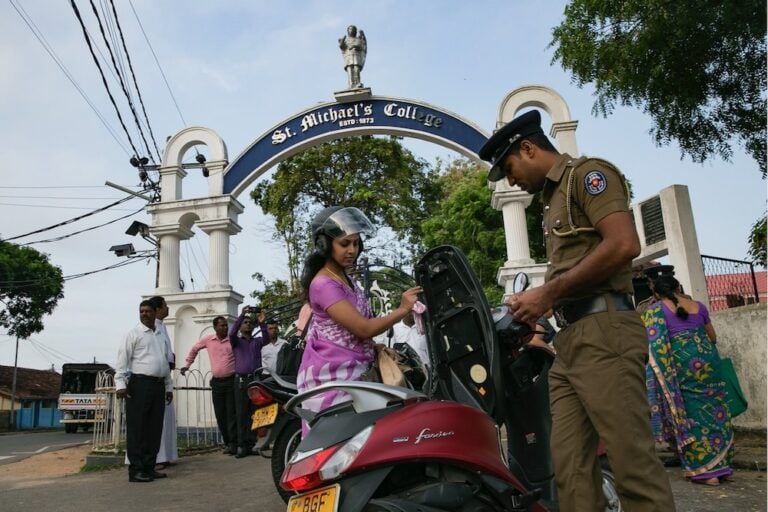(FMM/IFEX) – The following is a 14 October 2006 joint statement by five Sri Lankan human rights groups, including FMM: Sri Lanka Working Journalists Association (SLWJA) Federation of Media Employees Trade Union (FMETU) Sri Lanka Muslim Media Forum (SLMMF) Sri Lanka Tamil Journalists Alliance (SLTJA) Free Media Movement (FMM) Removal of “Sunday Observer” Editor We, […]
(FMM/IFEX) – The following is a 14 October 2006 joint statement by five Sri Lankan human rights groups, including FMM:
Sri Lanka Working Journalists Association (SLWJA)
Federation of Media Employees Trade Union (FMETU)
Sri Lanka Muslim Media Forum (SLMMF)
Sri Lanka Tamil Journalists Alliance (SLTJA)
Free Media Movement (FMM)
Removal of “Sunday Observer” Editor
We, five main journalists’ organizations working together for freedom for expression, professionalism in journalism, and professional solidarity, register our concern over the sudden removal of “The Sunday Observer” editor, Rajpal Abenayaka, without giving any valid reasons or observance of due process. “The Sunday Observer” is the English language weekly of ANCL, which is presently under the political control of the state, though it is a public media institution.
We condemn this act, which appears to be a political decision.
Mr. Rajpal Abenayaka was asked by the management of ANCL to submit a resignation letter on 10 October 2006, citing his column published on 8 October. The column in question was slightly critical of the president’s speech to Sri Lankan diplomats a week earlier. Although he did not tender his resignation, a new editor was appointed to “The Sunday Observer” on 10 October.
This is in clear interference to editorial independence, which is indispensable to press freedom. Interference in state media can be seen from the fact that “Dinamina”, the Sinhala language daily of ANCL, has had 14 editors in the last 12 years. This tradition of appointing and removing editors at the whim and fancy of politicians imposes a regime of indirect censorship in state (public) media.
If a government does not tolerate even the slightest of criticism, state (public) media will not be able to play its watch-dog role at all.
Although the state (public) media should have been given the independence to function as public service media, all governments so far have used these outlets to promote their party and individual political agendas. There has been no transparent and accountable policy on appointing or removing editors and directors of state (public) media.
The sudden removal of Mr. Rajpal Abenayaka as editor of “The Sunday Observer” re-emphasises the need to transform politically-controlled state media into truly public media, with professional integrity and respect.


